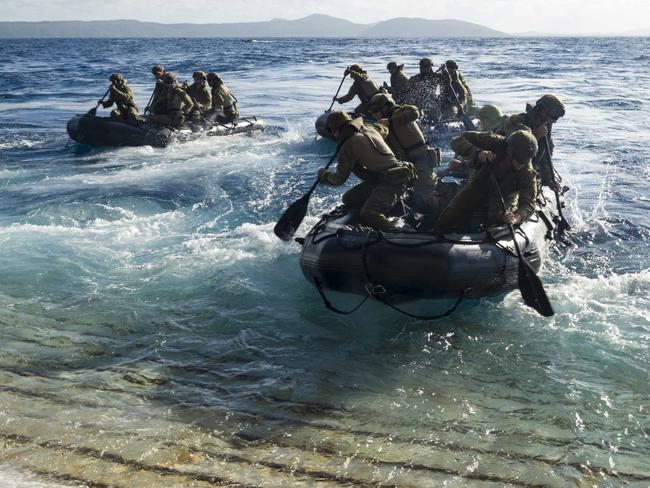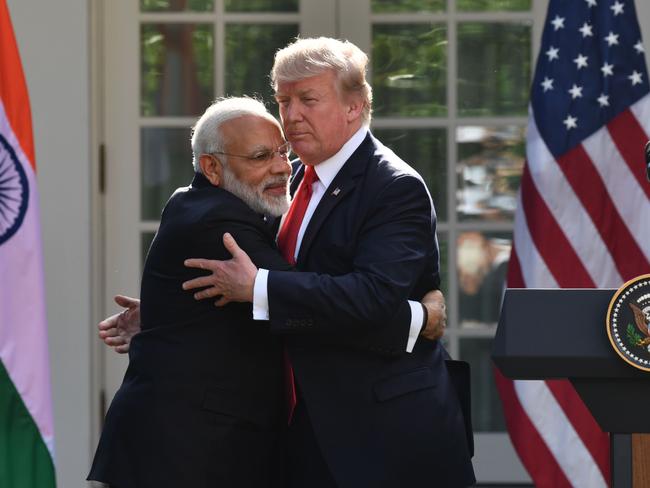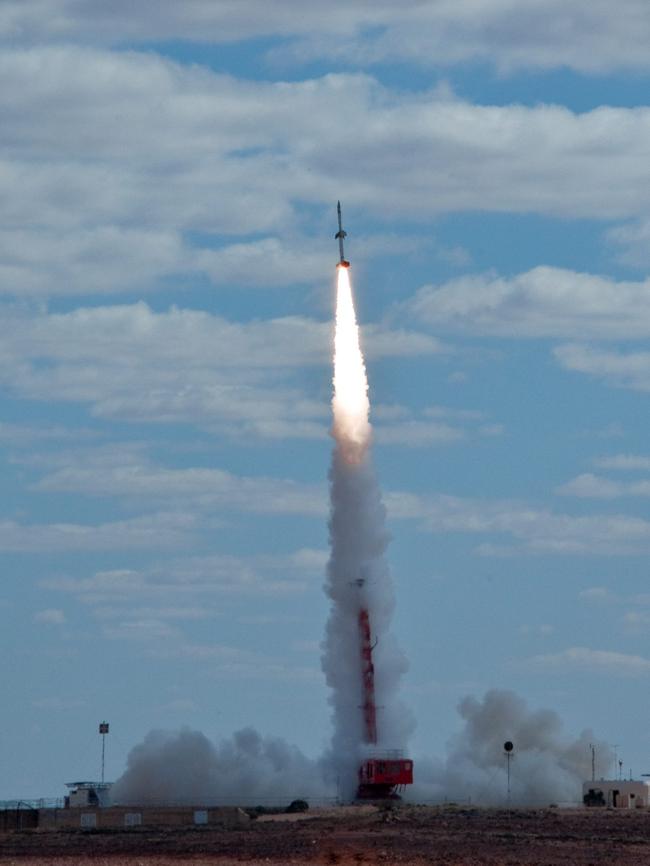Foreign policy White Paper outlines specific threats to Australia’s security
CHINA’S growing military muscle, “battle-hardened” terrorists returning home primed to kill and cyber attacks by foreign powers have been identified as major threats to Australia’s security and stability in the next decade.

NSW
Don't miss out on the headlines from NSW. Followed categories will be added to My News.
CHINA’S growing military muscle, “battle-hardened” terrorists returning home primed to kill and cyber attacks by foreign powers have been identified as major threats to Australia’s security and stability in the next decade.
The first foreign policy White Paper in 14 years — the federal government’s international relations strategy blueprint — paints a sobering picture of dangers ahead posed by China’s rising challenge to US dominance, a new hi-tech arms race, cyber warfare and environmental challenges.
To be released today by Foreign Minister Julie Bishop, it deliberately avoids specific policy recommendations or answers, but outlines the major priorities of future governments.

The power dynamic between the United States and China is the overarching challenge identified.
China is positioned as both Australia’s greatest trading partner and our greatest security concern although the language is diplomatic.
“In parts of the Indo-Pacific, including in Southeast Asia, China’s power and influence are growing to match, and in some cases exceed, that of the United States,” it states.
“Like all great powers, China will seek to influence the region to suit its own interests. As it does, a number of factors suggest we will face an increasingly complex and contested Indo-Pacific.”
The White Paper restates Australia’s commitment to the US alliance and notes that as China’s power grows and competes more directly with the United States, America will “for the foreseeable future, retain its significant global lead in military and soft power”.

In this context, maritime security is of increased importance for Australia, and the White Paper confirms Australia’s intention to “conduct co-operative activities with other countries consistent with international law” in the South China Sea.
But in an apparent warning about US President Donald Trump’s use of trade as a bargaining chip with China, it says: “There is a risk that trade and investment, which in the past have acted to restrain strategic rivalry, could fuel it instead.”
The White Paper says some foreign countries are breaking international rules increasing “their use of ‘measures short of war’ to pursue political and security objectives”.
These measures include “paramilitary operations, economic coercion, cyber attacks, misinformation and media manipulation”.
Terror threats “could worsen over the decade” with new Islamic extremist groups emerging to replace IS and as some of the 200 Australians in conflict zones return home.
“We must plan on the basis that a mass casualty attack against western targets in Southeast Asia will take place,” the White Paper states.
Terrorists’ ability to develop technologically advanced weapons at a lower cost is a major security threat. “Technological advances make developing bioweapons easier and cheaper,” it says.
Along with the United States and China, Japan and India are also exerting their influence in the Indo-Pacific region.
America’s share of the world economy has been nearly halved from 27 to 15 per cent since 1950, while China’s has grown exponentially.
America is still the wealthiest country in the world, leading the way in technology, innovation and still holds the military might of the world.

Some foreign countries are breaking international rules increasing “their use of ‘measures short of war’ to pursue political and security objectives”, the White Paper states.
These measures include “paramilitary operations, economic coercion, cyber attacks, misinformation and media manipulation.”
On the topic of cyber threat, the paper specifically identifies Russian cyber actors during the 2016 US presidential election.
“At the extreme, cyber actors could attack critical national infrastructure such as power grids and financial systems,” it states.
Terror threats “could worsen over the decade” with new Islamic extremist groups likely to emerge to replace Islamic State and as some of the 200 Australians who travelled to the conflict zones, returning home.
“We must plan on the basis that a mass casualty attack against western targets in Southeast Asia will take place,” the White Paper states.

“Fighters from our region may seek to return to their countries as ISIL loses territory in Iraq and Syria, and some will be battle-hardened and primed to conduct attacks.”
There is also a strong warning about the consequences of climate change, the impact on the Great Barrier Reef and strains on our food supply in the White Paper.
It predicts that climate impacts could add to social, economic and political tensions.
“The economic and security effects of climate change will sharpen and increase global stresses on the supply of food and water,” it states.

“The world’s oceans will be under greater pressure. Demand for seafood, especially from Asia, will further strain global fisheries, 31 per cent of which are fished at unsustainable levels.”
The paper notes that Australia will make an “important contribution” to respond to the shared challenges of climate change, deforestation and water management.
Terrorists’ ability to develop new, technologically advanced weapons at a lower cost are a major security threat in our region.
“Over the next 10 years the world will face new proliferation challenges because of emerging technologies with Weapons of Mass Destruction and conventional weapons applications,” it states.
“Terrorists continue to seek WMD to cause mass casualties. Technological advances make developing bio-weapons easier and cheaper. Chemical weapons are again being used, as seen recently in Syria. Proliferation networks, including for missile technology and small arms, threaten the security of the Indo–Pacific.”
While North Korea is identified as the most immediate threat to Australia, Ms Bishop told The Daily Telegraph it was not a major focus of the White Paper which examined the landscape a decade and more into the future.



